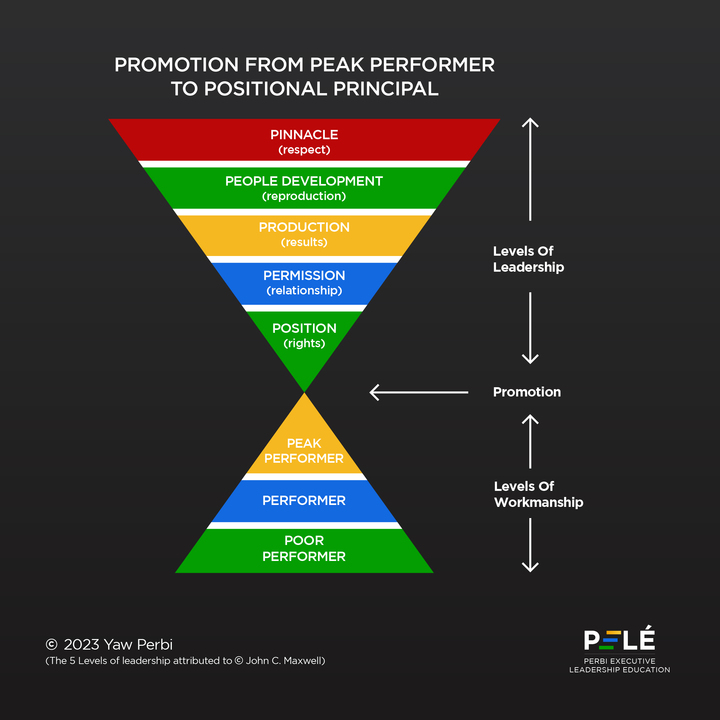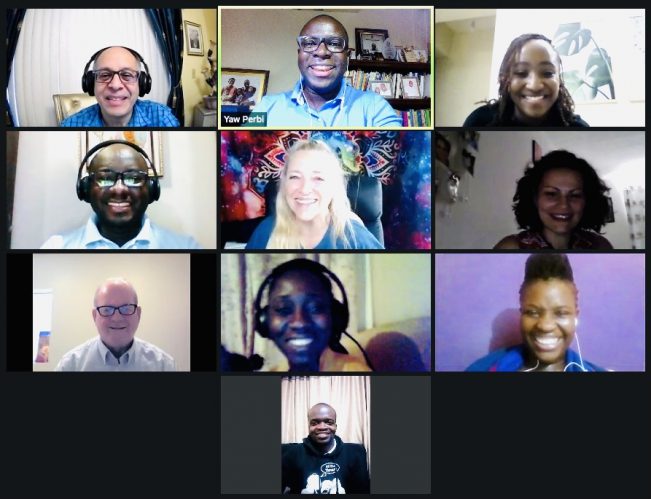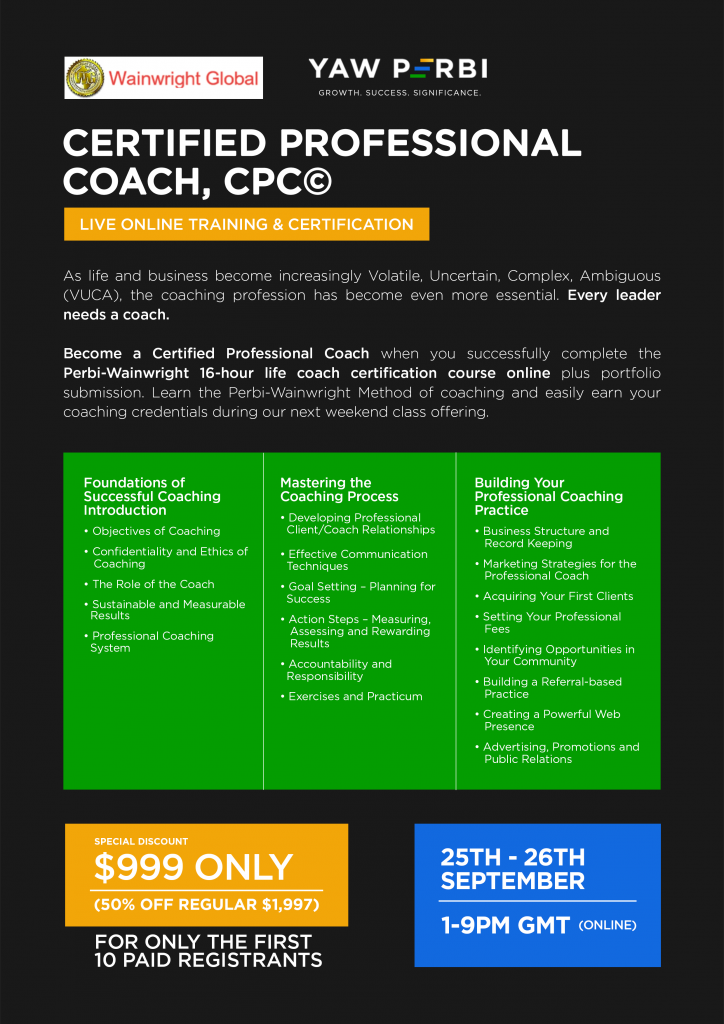
The Best Promotions are the Worst.
Here’s the worst thing about the best promotion. At one of my organizations, we recently had to let an excellent hire go. Come to think of it, we failed him. We failed him by promoting him.
You would think that all promotions are good but no. One of the worst kinds is being ‘elevated’ to become a leader just because you are an outstanding worker or producer. Working on stuff and excelling is very different from working with souls to excel. The reward for hard work is more work, weird yes, but the latter tends to be more mental work than manual —which most people find as more beneficial—also, more of working with people than working on things.
As one person shared about struggling with leadership upon her first promotion as a telco manager: “Within one month, I went from being the best programmer to the worst supervisor.” I’ve seen this happen to too many people in too many places. I grew up on the University of Ghana campus (both my grandfather and mother were professors there) and I would see time and time again fine lecturers promoted into leadership positions, from heads of department through deanship to vice-chancellorship and flail and fail. How many times have I said that a great chemist or erudite historian doesn’t necessarily make a great leader!
We do the same in the medical world, promoting top surgeons to head departments or if God doesn’t intervene, to head the hospital! When I was promoted to supervise the Military Polyclinic at the 37 Military Hospital in Accra, determining the doctors scheduling and all, in my opinion it was only because I wasn’t a bad doctor and had been around long enough. And no one gave me a minute’s training about leadership. Squat. Thank God I had been a private student of leadership for years prior.
It doesn’t start out as a bad thing; in fact, it is exhilarating at first for the recipient of the promotion. And the giver of the opportunity ordinarily also means well and feels good about it. But organizational leaders need to rethink the notion of making people supervisors, managers or leaders as a reward for diligent or even skillful individual technical work. It can backfire, seriously.
A STORY I CAN’T GET OVER
One of the most poignant illustrations of this phenomenon of worker/rewarded-as-leader is told by my mentor Bill George in his book ‘True North.’ It’s about the person who confessed upon her first promotion as a telco manager, “Within one month, I went from being the best programmer to the worst supervisor.” Here are some more details:
“It’s unbelievable how bad I was. I didn’t know how to delegate. When somebody had a question about their work, I’d pick it up and do it. My group was not accomplishing anything because I was on the critical path of everything. My boss saw we were imploding, so he did an amazing thing: He gave me every new project that came in. It was unreal. At 4:30 PM, my team would leave, and I’d be working day and night trying to dig through this stuff.
“Finally, I couldn’t take it any longer. I went to his office, stamped my foot like a 5-year-old, and said, “It’s not fairI have the work of 10 people:” He sad calmly, “Look out there. You have 10 people. Put them to work.” It was such a startling revelation. I said sheepishly, “I get it.”” [1]
If this person hadn’t eventually learned to lead people, she would never have made it to becoming president and CEO of the American Red Cross on June 23, 2008. Prior to that she had also held top management positions at AT&T Corporation and Fidelity Investments. She is a member of the board of trustees of Johns Hopkins University and the board of directors of DTE Energy.
This is Gail J. McGovern we’re talking about here, even recognized by Fortune magazine in 2000 and 2001 as one of the top 50 most powerful women in corporate America. Alas, not all of such stories that begin with such ‘good promotions’ end well, and even when they do, not without significant damage to many.
DIAGNOSIS OF LEADERSHIP FAILURE POST PROMOTION
It takes both a different mindset and skill set to move from being an excellent worker to being a good leader, let alone a great one. Yet we come to the world of work with both a mindset and skillset that ill-prepare us for leadership success. Even prior, we are socialized largely to excel as individuals. I concur with Bill George that this unpreparedness is attributable to our upbringing:
“…so much of our early success in life depends upon individual efforts, from the grades we earn in school to our performance in individual sports to our initial work assignments. Admissions offices and employers closely examine those achievements and use them to make comparisons. …As we are promoted from individual roles to leadership, we believe we are being recognized for our ability to get others to follow us…
“To become authentic leaders, we must discard the myth that leadership means having legions of supporters following us as we ascend to the pinnacles of power. Only then can we realize that authentic leadership is serving people… How else can they unleash the power of their organization unless they motivate people to reach their full potential? … Only when leaders stop focusing on their personal needs and see themselves as serving others are they able to develop other leaders.” [2]
ROAD MAP TO LEADERSHIP SUCCESS POST PROMOTION
If Maxwell’s 5 Levels of Leadership is anything to go by, then when one is promoted from the top echelons of the worker floor (Peak Performer/Worker Level 3 in diagram above), they only end up at Level 1 of leadership: Position. The lowest level of leadership—the entry level, if you will—is position. People only follow if they believe that they have to (otherwise you might use your powers of carrot and stick). If this leader takes the hint and invests in their leadership growth, they can move to Leader Level 2—Permission—which is based on relationship. At this level, people choose to follow because they want to.
You will notice that even what Gail was trying to get done at work, putting the 10 people ‘out there’ to work, is still only mid-level in the Maxwell scheme of things: Production. Good leaders know how to motivate their people to GTD – get things done! And getting things done is what Leader Level 3 is all about. But they’re only good; not great. Leader Level 4 — People Development—can be summed up in another word: Reproduction. One’s goal at this level is to identify and develop as many leaders as one can and investing in them to help them grow. Here (Leader Level 4), you’re producing people as leaders, not producing work through people (Leader Level 3).
The most challenging and highest level of leadership, Level 5, is the Pinnacle. According to Maxwell, it requires longevity as well as intentionality in investing one’s life into the lives of other leaders and organizations for the long haul (while growing yourself as lifelong learner all the while). People follow such because of who they are and what they represent. Their leadership gains a positive reputation, betters still, one has earned respect.
Note that Level 5 leaders develop Level 5 organizations. I will add that in the leader verses institutions debate—as to whether it is strong leaders or strong institutions we need to develop long-term—I would say that it takes Level 5 leaders to build the structures and systems that produce strong institutions. This is the realm of legacy. As a result, Level 5 leaders often transcend their position, their organization, their industry and perhaps even their nation.
And nothing accelerates leaders through these levels, from 1 to 5, like intentional coaching.
CONCLUSION
As you can tell already, it’s a long way from being the best worker to being a great leader. There is nothing more painful than a “highly capable individual” (as Jim Collins puts it) thinking that just because they’ve been a peak performer and ‘made it’ onto the supervision, management or leadership floor that they’ve got what it takes to run the ship. One’s productive contribution through individual effort in knowledge, skills and good work habits won’t cut it. As promoters, if we promote people and fail to plan a leadership growth path alongside that, we’ve inadvertently planned to fail them.
Congratulations on your promotion, but to ensure that dream-come-true doesn’t become a nightmare, and the reward a trap instead, you must be aware that it’s a floor and not the ceiling. Top floor workers’ triumphal entry through the golden portal of promotion only lands you as a ground floor leader. Welcome to Level 1 of Leadership: position. Just that.
References
[1] Bill George. True North: Becoming an Authentic Leader. Second edition; expanded and updated edition. Jossey-Bass, Hoboken, NJ, 2015, pg. 186-187.
[2] Ibid, pg. 185

You Don’t Know What You’re Missing!

An August 2021 training for the Certified Professional Coach designation as a collaboration between Yaw Perbi (YP) Executive Education company and Wainright Global. We represented several U.S. states (from coast to coast), Canada, England, Ghana, Kenya, Romania, Rwanda and Uganda.
Growing up, my father was an ardent follower of the gospel singer André Crouch. Consequently I got indoctrinated early, hearing these songs from vinyl records at home and cassette tapes in the car. One of Crouch’s Christian apologetic songs that still rings in my mind today boldly claimed, “You don’t know what you’re missing until you’ve met the Lord!” Having met the Lord myself, I concur. But today, let me share what else you don’t know you’re missing.
I would really love to talk to you about the power of coaching. I say you don’t know what you’re missing because in my experience, most people don’t grasp the power of coaching, no matter how hard I try to explain the power of coaching to them until they have tasted it for themselves, even if it is a free 30-minute ‘chemistry session.’ It’s one of those you-don’t-know-what-you-don’t-know-until-you’ve-experienced-it kind of things. It really makes me to see the wisdom in sales strategies like the ones car salesmen employ, where they allow you to do a free test drive. As you sink into the comfort of those leather seats and cruise in that Mercedes, Range Rover or whatever, all of us a sudden you realize what you’ve been missing and that you really ‘needed’ this car, you just didn’t know it prior! (laughs)
MY BREAKTHROUGH
Until I got a coach myself, there were certain things like revising and expanding my old books that had stalled for ten years! All of a sudden, with the clarity that came from the socratic questioning and the power of accountability I got going, and have never turned back since. That was passive income and active impact I had been leaving on the table for a decade! This experience is one of the reasons I insist that even a coach needs a coach. Every leader needs a coach. In fact, every breathing human being needs a coach!
SISTER-SISTER
At Yaw Perbi (YP), C-level/C-suite executives are our strong suit. One of our earliest encouragements in our coaching practice was when a Vice President of a significant global mining firm who had been cautiously optimistic about coaching signed up to try it for six months. By her first couple of sessions she was enjoying the benefits of coaching–the inspiration, clarity of thought, transformation, skills, resources, accountability etc.–so much that she offered to give her best friend, an engineer with a multilateral organization, a birthday gift of a six-month coaching package from YP.
While I wait to share their powerful testimonials with you via video powerful 1-2 minute videos, here is a short and impressive one-minute video of Dr. Chinweike Eseonu, a Nigerian coaching client resident in the United States. This former professor of engineering at Oregon State University met his 12-month coaching goal in half the time, through our coaching! Again, his too was a six-month gift from his sister, a medical doctor in the States. Chinweike and another coaching client in the United States have both met their coaching outcome to find new jobs that they are passionate about and which pay them much better. In fact, the other coaching client has had a 51% pay raise in her new offer, which also affords her an opportunity to move from her current state of Texas to Wisconsin, away from a lot of bad memories from a hard divorce.
HELP US HELP PEOPLE KNOW WHAT THEY’RE MISSING
Friend, if you’re not being coached, you are missing out a lot! Get coached today! One of the things we want to ensure does not become an excuse is, “well, there are not enough good, certified coaches around.” Also others like, “I cannot find one I have good chemistry with” or “there’s none within my budget.”
At our executive education company, we are on a coaching revolution to see every leader being helped to authentically live and optimally make decisions by training and certifying 60 Certified Professional Coaches (CPC) between August and December who will then impact another 700-800 leaders by the end of the year.
So apart from getting coached yourself, if you are someone who loves people, loves to see people develop, if you have the patience to listen to others without judgment and create a safe space where through your powerful, socratic follow-up questioning they can clarify their thoughts and desires regarding their lives and goals and provide the accountability for follow-through, then why not get trained and certified to help others in this way? It is a great way to make impact and income simultaneously.
The are people waiting for you to help them, from ‘the least of these’ to the highest flying leaders. Every leader needs a coach, and I’m proud to be part of the biggest network of coaches in Africa, Breakfast Club Africa, with the big dream that one day every African president will have a coach. The continent will not be same; you won’t recognize the African continent because not only will these leaders be supported to make optimal decisions and to be authentic leaders, they would have the framework for voluntary accountability to deliver what they have said to themselves (let alone to the masses) that they want to accomplish.
Below is the information for the next round of training and certification on September 25 & 26, 2021. Join the revolution! Register now, here.


